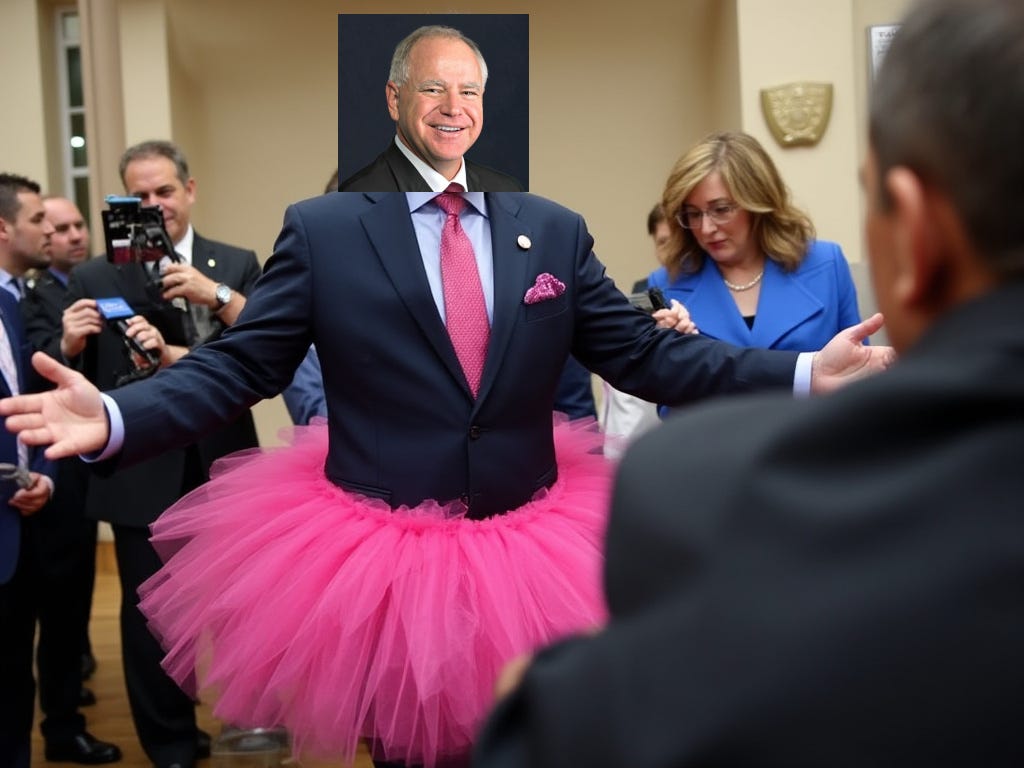Harris's Public Radio Interview: A Missed Opportunity for Clarity and Connection
Unable to close the deal .....
In a recent interview on public radio, Vice President Kamala Harris aimed to connect with the American public on issues ranging from economic policy to environmental concerns. However, her approach, while appealing to her base, may have missed the mark with the broader, more skeptical audience she needs to win over in her presidential bid against former President Donald Trump.
The Interview's Highlights:
Economic Policies: Harris touched on reducing bureaucratic hurdles, what she nebulously referred to as "cutting the red tape." Yet, she offered no concrete commitments to deregulation, leaving listeners to wonder about her actual stance on business and market freedoms. Her repeated emphasis on her middle-class upbringing felt more like a well-worn campaign script than a fresh policy proposal.
Environmental Concerns: The mention of "Forever Chemicals" was a nod to environmental issues, a staple in public radio discussions. However, this felt more like pandering to her existing voter base rather than an attempt to broaden her appeal.
Connecting with Voters: Harris's attempt to embrace working-class themes, like gun ownership and acknowledging high prices, seems like a strategic move to extend her platform beyond traditional Democratic voters. However, her messaging lacks the detail or the conviction needed to resonate genuinely with those outside her current support circle.
Analysis:
The interview can be seen through the lens of Microsoft's former strategy of "Embrace, Extend, Extinguish," albeit in a political context. Harris is embracing elements of working-class culture and extending her narrative to include symbols like American flags and chants that might appeal to a broader electorate. However, her strategy falters at "extinguish" – she hasn't convincingly extinguished doubts or converted the undecided or Republican-leaning voters in significant numbers.
Embrace: By talking about owning a gun or recognizing economic hardships, Harris attempts to connect with voters who might feel alienated by more urban, liberal policies.
Extend: Her campaign's use of nationalistic symbols and rhetoric is a clear attempt to extend her appeal, suggesting a broad, inclusive American identity.
Extinguish: Here, Harris stumbles. Despite the debate and various public appearances, she hasn't managed to decisively close the gap with Trump, indicating a failure to consolidate her narrative in a way that extinguishes his support base.
The debate was perhaps her most significant platform to shift the narrative decisively, yet it seems she didn't capitalize on this opportunity. Her inability to connect beyond her demographic stronghold, especially after her less than stellar performance in the 2020 primaries, underscores a pattern of struggle in broadening her voter base.
Conclusion:
Harris's interview, while well-intentioned, may serve as a testament to her campaign's challenges. With substantial financial backing and a team of seasoned political strategists, her difficulty in resonating beyond her core supporters points to a deeper issue – perhaps a limitation in her political persona or messaging that fails to ignite the passion or trust needed to sway the undecided or purple-conservative-leaning voters effectively.
As the election approaches, the narrative around Harris will likely focus on her ability, or lack thereof, to adapt her message to genuinely embrace, extend, and ultimately extinguish the political opposition. For now, the interview might be remembered more for what it didn't say than for what it did.




